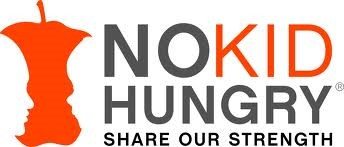“We are only as strong as we are united, as weak as we are divided.”
J.K. Rowling
On a hot and hazy morning in August 1984, Bill Shore’s life changed. He was a senior political advisor to Senator Gary Hart in his Washington office. Coming off Hart’s presidential campaign loss, Shore was reading the Washington Post when he came across a brief article about impending famine in Africa: “200,000 to Die this Summer in Ethiopia,” the headline read. However, what really got Shore’s attention was that although the calamity had not yet struck; the experts could see it coming, they could also see that nothing was going to be done to stop it. Like hitting a light switch in a darkened room, Shore recalls “the newspaper story read like an invitation to act.”
Before this moment, “action” would have meant recommending some politically beneficial course of action to the powerful politicians he had worked with for several years. But now, it meant following the impulse to use his talent, imagination, and connections to pull together a network of seemingly disparate causes and purposes, enterprises and individuals to help the hungry, both at home and abroad. Several weeks later, Share Our strength (SOS) was founded.
Taking a $2000 cash advance on a credit card, Shore and his sister Debbie rented a row house in Washington D.C. and began by developing a simple, straightforward philosophy to guide their efforts: It takes more than food to fight hunger. Almost three decades later, they are still going strong. Raising more than $315 million dollars to end hunger and its primary accomplice, poverty, and disbursing over $43 million in grants to more than 1,000 organizations, Share Our Strength has positively touched millions of people all over the world. But the Shore’s would be quick to note, that’s not the point. Impact is. And the reason for that impact is the unconventional approach they’ve employed to serve the most vulnerable citizens of our society.
Unlike other organizations working to solve the host of challenges facing the social sector and who run on donations or are dependent on government grants or stipends, SOS developed a whole new way of fostering positive change. That is, they don’t seek handouts or ask people for money. Rather, they ask people to contribute of themselves, through their talents, skills, energy, ideas and most passionate interests. In other words, they offer people opportunities to share their personal strengths by becoming citizen leaders in their own communities. Engaging chefs to cook, writers to write, musicians to make music, and lawyers to provide legal advice, as well as bankers, scientists, artists—many previously uninvolved and uncommitted—to support the needy. The secret sauce of SOS’ success is they found that individuals are generous and eager to share their talents and that such personal involvement connects them to the work of SOS in ways a financial contribution could not.
And the organization’s success is well known. As Bill shore shared in an interview with his alma mater, the University of Pennsylvania, “Ours is an organization of ordinary people putting food in front of others who have no food — people leaving their homes or offices to teach, train, and befriend others in neighborhoods where there are no such homes or offices; people using their restaurants, hotels, public relations firms, printing companies, photography darkrooms, or breweries to produce the dollars needed to staff kitchens, shelters, and health clinics. Most of these people would never consider themselves political activists. As the heroes of the 1960s were those who demonstrated for civil rights, perhaps the heroes of our generation will be those who are demonstrating their own civil responsibilities.”
Today, America faces a host of challenges: Our political system seems paralyzed ; our national debt continues to escalate; numerous public schools are failing to provide students with a relevant education; cities are literally going bankrupt; scores of veterans who have served numerous tours in Afghanistan and Iraq are struggling to successfully reintegrate into society; and recently, the U.S. Census Bureau reported the rate of poverty in America has climbed to its highest level in more than 20 years. That’s 46 million people in the U.S. living at or below the poverty line. It’s also the largest total number since the bureau started tracking poverty in 1959.
But here is the good news: None of these challenges are insurmountable. In fact, our country’s history bears out that we are often our best when the challenges before us are most daunting and discouraging. If, that is, we are willing to roll up our sleeves and get busy contributing our unique strengths to a cause worth fighting for. So how do I get started, you ask? Answer these five questions and I promise you will be well on your way to being part of the proactive solution instead of remaining part of the passive problem:
- Which cause breaks my heart? (Struggling veterans, failing schools, hungry children?)
- Who in my community is working to address that specific cause?
- If it is being addressed, am I willing to join them?
- If it is not being addressed, will I take the lead in doing something to address this cause?
- If I choose not to do anything, will I regret my decision one day?

